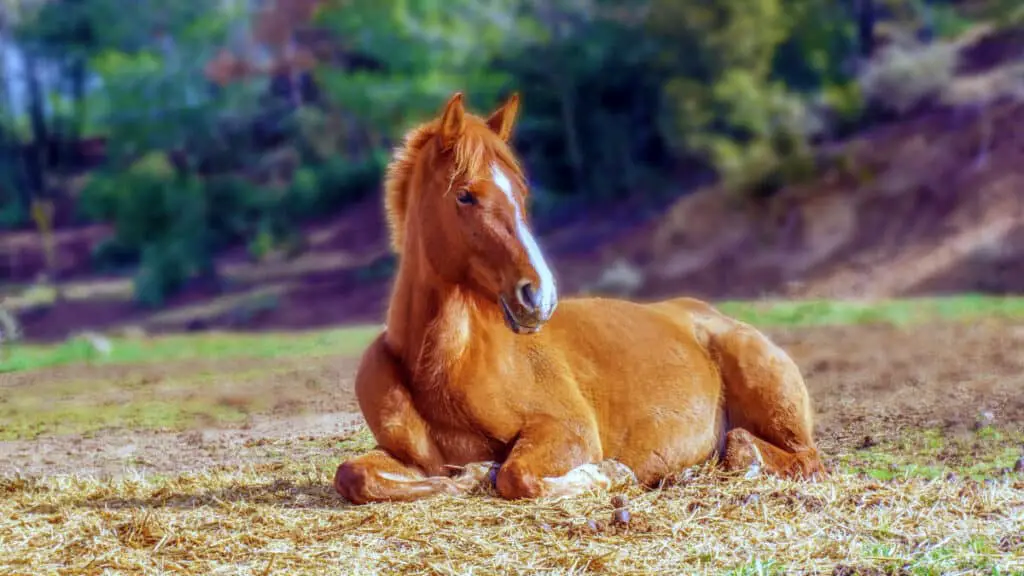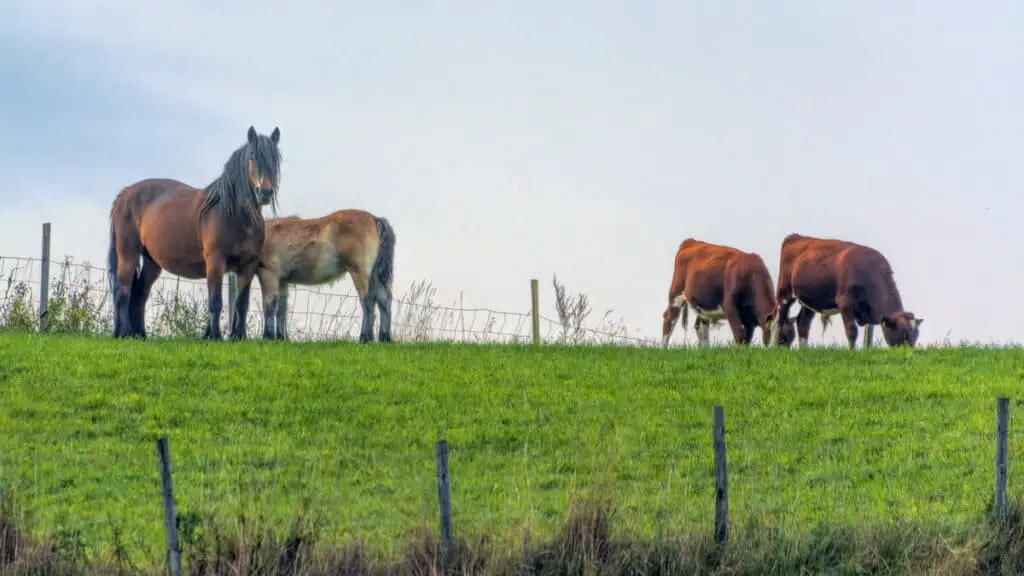Skip To Section
If you’re an animal lover, you’re probably already aware that many animals produce methane – a gas that is harmful to our planet. However, you might not be sure about all animals, and perhaps you’ve occasionally wondered “do horses produce methane?”
The quick answer is that horses produce far less methane than many other grazers such as sheep, and they are considered reasonably eco-friendly grazers. They are not particularly damaging to the planet, which is great news for any horse-lover.

So, first, what is methane? It’s a dangerous greenhouse gas that EuroNews says is more than 80 times more dangerous to the planet than carbon dioxide for the first twenty years after it has been released.
Obviously, that’s a pretty big deal, and that’s why so many people are looking at the animal production of methane, especially among the grazing animals that we keep and breed in massive numbers.
Methane production in certain grazing animals is high because the animals – often known as ruminants – have a bacteria in their stomachs that produces a lot of methane. This is a normal part of the animal’s digestive system and will be ejected from the animal via belching.
You might be wondering why the methane emissions from a horse are so much lower. This is because horses digest grass differently.
According to HorsesExtension, they digest their food in a single stomach, instead of in several stomachs.
This means they do not tackle such tough grasses, and therefore they do not depend on the same bacteria. This massively reduces the amount of methane they produce.
Do Horses Contribute To Global Warming?
Any living creature will contribute to global warming to a degree, although they can also decrease its impact if they provide a carbon “sink.” Horses do create methane, but InTechOpen suggests that horse dung could be a useful component of creating biogas, which would reduce greenhouse gas emissions.
How much an individual horse contributes to global warming would depend very much on how the horse is kept, what it is fed, how it is housed, and many other factors. Certainly, horses do contribute something, but so does every living creature, and they are more environmentally friendly than many fellow grazers!

Do Horses Produce As Much Methane As Cows?
No, they don’t. As explained by Insider, horses produce less methane than many other ruminant animals because they process food differently.
While their digestive system certainly produces some methane, cows are a bigger culprit in this case.
Do Horses Produce More Methane Than Pigs?
Pigs are similar to horses in that they only have one stomach, and this means that they don’t produce much methane when compared with animals like cows. They are probably on a par with horses when it comes to methane production.
However, pigs may be kept in more intensive, crowded conditions, which means that overall, they could contribute more to methane production just because there are more of them.
Which Animal Produces The Most Methane?
This depends on your perspective. Often, cows get the blame for most of the methane production, but in reality, humans are the biggest producers of methane, mostly through our activity.
We have bred the livestock that contributes, but we have also created the oil and gas industries and we use things like plastic bags, which IdeasTed says release methane when heated.
If we want to stop global warming, blaming the cows is missing the big picture. We need a wider perspective and the willingness to accept our responsibility for the situation.
Summary
Horses do produce some methane, as most creatures do, but this is limited. With just one stomach, they are responsible for only a small proportion of methane emissions, even with horse ownership growing in popularity.
Find out more interesting facts and information about horses!
References
- https://www.sciencedirect.com/science/article/abs/pii/S0737080618306452
- https://horses.extension.org/what-is-the-carbon-footprint-of-a-horse-compared-to-an-automobile/
- https://www.intechopen.com/chapters/52682
- https://www.theguardian.com/sustainable-business/horsemeat-better-than-beef-sustainability
- https://insider.si.edu/2015/11/monitoring-methane-now-there-is-a-better-measure/
- https://www.horsetalk.co.nz/2013/03/04/reducing-your-carbon-hoofprint/
- https://www.euronews.com/green/2021/04/22/cow-burps-are-being-used-to-offset-our-carbon-emissions
- https://ideas.ted.com/methane-isnt-just-cow-farts-its-also-cow-burps-and-other-weird-facts-you-didnt-know-about-this-potent-greenhouse-gas/
